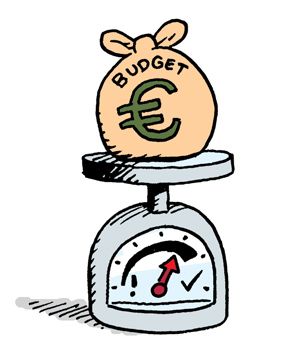Budget 2022 must embrace need for new priorities

Despite significant progress over the past few months, Ireland remains in a period of enormous uncertainty. Optimistic assumptions point towards a rebound in economic activity and employment from late 2021 or early 2022. Conversely, pessimistic assumptions fear ongoing public health related disruptions and a slow emergence from the Covid-19 crisis. Most likely, the reality lies somewhere in between - but there are limited clues as to where.
Budget 2022 is being framed in the context of this ongoing uncertainty. Like Budget 2021, it will have to include a provision for possible additional public expenditure that may or may not be needed in the months ahead. It will also have to include plans to boost economic activity and support people, families, businesses and communities when the public health environment allows.
To date, the efforts to support household income in Ireland by Government through the Pandemic Unemployment Payment and Employee Wage Subsidy Scheme have played a key role in sustaining households and businesses.
As we outline throughout this document, the Covid-19 pandemic has the potential to leave significant scars on the labour market, on young people, women and health services. It has also revealed the role of the state as the provider of an economic and social safety net to all people and sectors in society; an aspect of the social contract implicit in welfare states such as ours by overlooked for some time. Its revelation highlights a need for new thinking on how public services are funded, provided and distributed.
Extraordinary measures required
Given the scale of disruption, it must be recognised that extraordinary Government expenditure will be required to sustain demand and to support incomes through the immediate crisis and emergence from the public health restrictions, through the recovery period, and through the return to a new, sustainable, long-term trajectory for the economy.
In Ireland, over the past decade and more, we have become accustomed to being guided by an overall budget target that has adjusted to changing realities over time. After the crash of 2008 the focus was on reducing borrowing. Then it moved on to focusing on balancing income and expenditure. More recently, as we were more or less paying our way, the focus had been shifting towards reducing the national debt. The post-Covid-19 world changes all that.
In the years ahead, as we move through the public health restrictions and into a recovery period, the fiscal stance adopted by Ireland must have a different focus. The objective must be to support demand by:
[a] supporting the incomes of citizen; and
[b] through Government capital expenditure
rather than achieving some arbitrary deficit target.
Support economic recovery, don’t prevent it
It is vital that the fiscal stance adopted by Ireland in response to the Covid-19 crisis supports an economic recovery, rather than preventing one and causing permanent damage to our long-term economic capacity and, more importantly, to the well-being of our citizens.
The importance of supporting economic activity has been recognised by the European Commission; in its Multiannual Financial Framework (MFF) 2021-2027, the Commission have recognised both that additional fiscal resources are necessary and that they should be frontloaded to 2020-2022.
Social Justice Ireland’s proposed stance
There will, we acknowledge, be significant differences in the criteria used to determine the country’s fiscal stance as we emerge from the Covid-19 public health restrictions.
Social Justice Ireland proposes that:
- For the years 2021-2023, or until Ireland reaches full employment (if earlier than 2023), the fiscal stance adopted by Ireland should be determined by an unemployment target, rather than a deficit target, in recognition of the role domestic demand plays in sustaining domestic employment; and,
- The State should begin to plan now for the additional tax measures necessary, over the long-term, to finance the Government expenditure required to finance universal services and income supports for our citizens.
It is acknowledged that the adoption of an unemployment rate target for 2021-2023 would represent a shift in the fiscal policy framework, and a temporary departure from the EU fiscal rules.
It is also acknowledged that this policy depends on the ongoing accommodating stance adopted by the ECB.
However, at present it is clear the Commission are willing to suspend the fiscal rules and the ECB are willing to do what is required to support economic recovery.
As the increase in unemployment in Ireland has been entirely caused by a temporary collapse in demand for labour, the adoption of a short-term demand management policy represents the most effective means to restore economic activity. The goal is not to allow a potentially temporary situation develop into a long-term crisis.
Austerity with the simple objective of reducing the debt and deficit would be a serious mistake, and would, over time, undermine the very objective it seeks to achieve by permanently destroying the economic capacity of the country.
Overall, despite the immediate uncertainty, Budget 2022 must embrace the need for new approaches to how we as a society prioritise choices. People, well-being, public services and a widespread and fair recovery must come first.